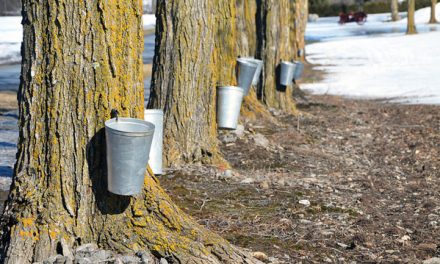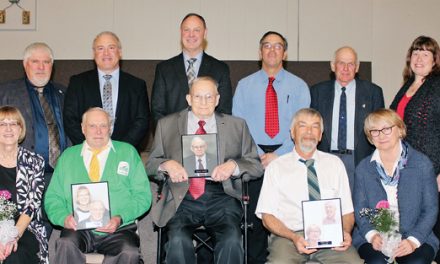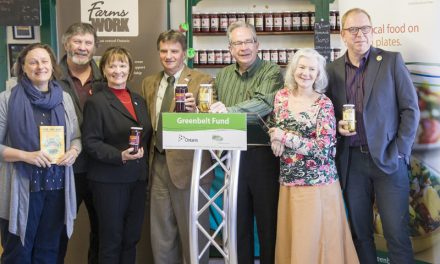RUSSELL – It wasn’t intended that way, but the mother-and-daughter veterinarian team of Ingrid Van der Linden and Shauna Thomas got a good test of how they travel together when they went to Nepal for three-and-a-half weeks last May.
The voyage went smoothly, the women recalled while showing the pictorial record of the trip in the cozy Van der Linden home on Eadie Road in Russell Township. It was something young Shauna always wanted to do and her mom was pleased to go along for the ride.
That trip was for pleasure; when they described it, they were taking a break from preparing for a more business oriented two-week mission to Ghana with Veterinarians Without Borders – an organization not unlike Doctors Without Borders, although lower-profile. They will be part of a team assisting small local farmers to increase their incomes from poultry and livestock management, particularly goats.
“While farmers tend to treat their crops in a business-like way, livestock are a free-range sideline managed from a distance,” Van der Linden observed. “One of the messages we want to get across is that they should build shelters and bring their animals in at night to monitor their condition.”
Going by the Nepal experience, Ghana should be smooth … at least in terms of mother-daughter relations. The VWB team was departing Jan. 18 from Toronto, expecting to finally arrive in Tamale, Ghana, two days later. That’s where they’ll be based for two weeks, fanning out from there to visit at different rural locations, with farmers gathered to meet with them and hear what they have to say.
Also facilitating the project is the fact both women have been on missions to Africa in the past; Thomas in 2016 while a vet student and Van der Linden, who worked for the Canadian Food Inspection Agency, several years ago. While Van der Linden admits her knowledge is dated, both have a handle on the African rural culture.
One aspect of that culture they intend to tackle head-on is an almost total focus on men, even though women tend to perform much of the farm work. They hope to engage women in the discussion which they insisted is strictly advisory, with no treatment being provided.
Among the lessons the vets hope to impart are improved feed formulation, diagnosis and control of diseases, and the merit of building a strong network of area farmers, including women. A business model promoted by VWB emphasizes shifting from farming for subsistence to farming for profit, Thomas explained. The training program the visiting vets have been delivering over five years is designed to equip farmers to effectively manage small ruminant production in order to meet financial needs.
“Because these farmers consider animal production secondary to crop production, the system is poorly managed, offers poor nutrition and results in low productivity due to high mortality. In order to improve production, good management practices must be adopted through extensive education and training.”
Van de Linden is taking holiday time from the CFIA while Thomas, who recently began working for Almonte Veterinarian Services, was granted time off without pay. They estimate the cost of the trip at about $5,000 for both, which is fronted by VWB; Thomas is trying to recoup some of the costs by seeking support for the Ghana project at www.vetswithoutborders.ca/v4h2-shauna-thomas.












